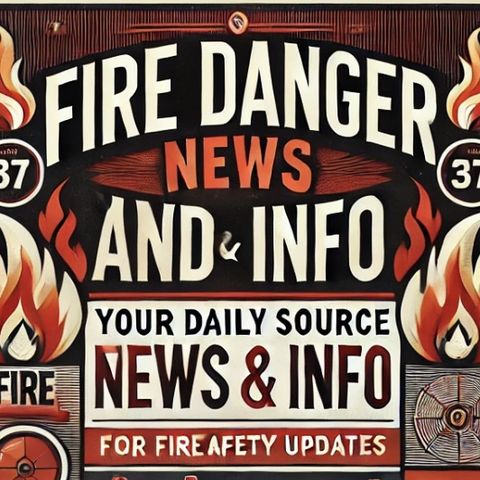Mitigating Wildfire Risks: How USGS Fire Science Enhances Prevention and Recovery Efforts

Download and listen anywhere
Download your favorite episodes and enjoy them, wherever you are! Sign up or log in now to access offline listening.
Mitigating Wildfire Risks: How USGS Fire Science Enhances Prevention and Recovery Efforts
This is an automatically generated transcript. Please note that complete accuracy is not guaranteed.
Description
Wildfires are becoming increasingly frequent and destructive across the western United States, posing significant threats to ecosystems, wildlife, and human communities. The U.S. Geological Survey's (USGS) involvement in fire science...
show moreOne of the key areas of USGS fire science is improving our understanding of fire dynamics. This includes investigating how fires start, spread, and behave under varying conditions. By examining factors such as vegetation type, topography, and weather patterns, researchers can develop sophisticated models to predict fire paths and intensities. This information is essential for firefighters and land managers to allocate resources effectively, ensuring timely and efficient responses to wildfire threats.
A vital element of USGS’s work is the development of advanced remote sensing technologies and geographic information systems (GIS). These tools provide real-time data and analysis, enabling scientists to monitor active fires and assess their impacts on the landscape. Innovative satellite imagery and aerial mapping allow for accurate tracking of fire progression, which is crucial for coordinating emergency services and planning evacuations.
Moreover, USGS fire science plays a critical role in post-fire recovery efforts. Determining the ecological impacts of wildfires on different habitats helps in formulating strategies for environmental restoration. This includes studying soil stabilization, water quality, and vegetation regrowth to ensure that ecosystems recover and become more resilient to future fires. Encouraging native species replanting and controlling invasive species that can exacerbate fire risks are also important recovery measures supported by USGS research.
Another significant contribution of the USGS is in evaluating the long-term effects of climate change on fire frequency and intensity. Their research indicates that rising temperatures and changing precipitation patterns are likely to increase wildfire risks. Understanding these trends helps in designing landscape management practices that reduce fuel accumulation and adapt natural resources management to changing climatic conditions.
Public education and community involvement are also central to USGS initiatives. By sharing knowledge through outreach programs, workshops, and partnerships with local agencies, USGS fosters community preparedness and resilience. Communities informed about fire science can better implement firewise strategies, such as creating defensible spaces around properties and developing effective evacuation plans.
Overall, the USGS Wildland Fire Science program is an indispensable resource for addressing the challenges posed by wildfires in the western United States. Through cutting-edge research and technology, they provide the tools and knowledge necessary to safeguard lives, property, and the environment from the increasing threat of wildfires. For more detailed insights into their work and how it benefits fire management practices, the USGS Wildland Fire Science webpage offers comprehensive resources.
Information
| Author | QP-4 |
| Organization | William Corbin |
| Website | - |
| Tags |
Copyright 2024 - Spreaker Inc. an iHeartMedia Company
